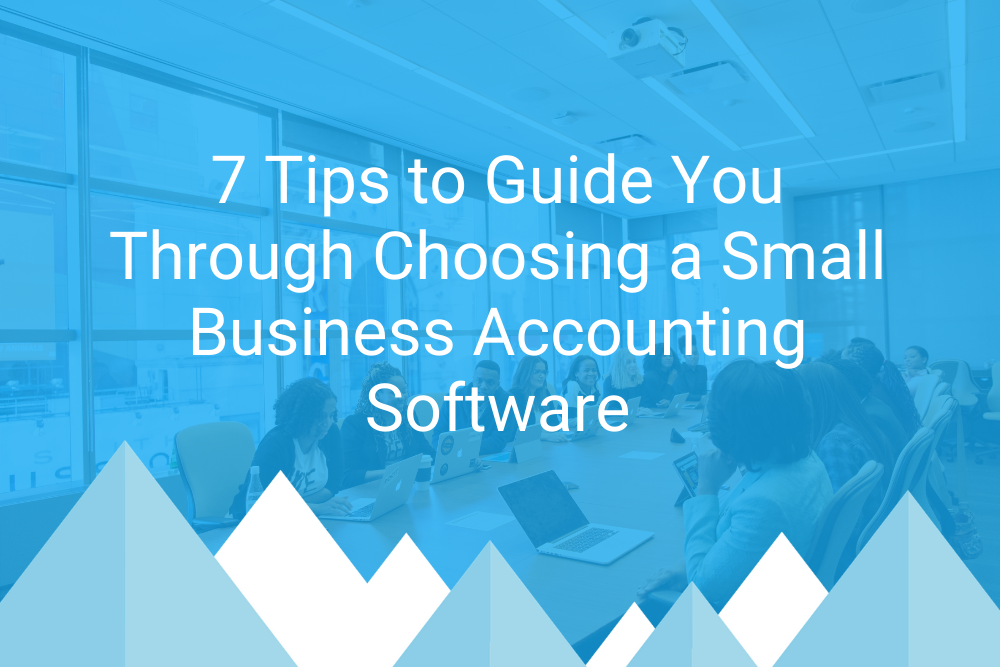There is no denying that accounting is an important element of your small business’s foundation. Everything revolves around your accounting processes, from getting paid by clients to long-term financial planning. If your accounting is not in order, other firm elements are likely to suffer as a result.
What is the key to having a well-organized accounting system?
It used to be that a trusty pen and paper would suffice, but nowadays, it all boils down to the accounting software you select. Accounting software is designed to handle the tedious tasks of accounting, recording, and processing your company’s transactions. When acquiring accounting software for your small business, there are many factors to consider. Every piece of accounting software available has something unique to offer. It is critical to find the one that can provide the greatest value to your company. That is why here is a list of the top seven recommendations to assist you in making your decision.
Take the cloud into consideration:
The majority of today’s leading accounting software is hosted in the cloud. What exactly does that imply? The only difference is that the software’s data is not saved and processed locally. Instead of storing on the server or hard disc, data is processed over the internet. Many advantages come with this style of accounting. For example, save you up to 15 hours every week. Not to mention that it means you can view your info from anywhere with an internet connection. This is ideal for entrepreneurs that are constantly on the move.
Be realistic about your skills and needs:
Do not just go with the cheapest accounting software or the one with the most appealing marketing. It is critical to think about how your company runs and your accounting skills first. Some software, for instance, is specifically intended for service businesses. This is not a good choice for a retail establishment. While researching accounting software, keep in mind your industry, how much money you make, and how much help you require.
Keep in mind your financial constraints:
Accounting software comes in a wide pricing range. There are a multitude of payment methods available, as well as a wide range of prices. However, there is a wide range of services available. Accounting software that is tailored to a specific industry is usually more expensive. If you choose more generalist software, you might be able to work on a tighter budget. However, keep in mind the last point and do not sacrifice important features for a lesser price.
Take a look at the bonus:
Although add-ons and extra features are not essential to accounting software, they can make your life easier and provide added value. Make sure to think about all of the software’s features and add-ons. One small thing could be so important to your company that it is a no-brainer. Add-ons are where you will find integrations frequently. Look for applications, software, or systems that you are already familiar with. The better your accounting software is, the more compatible it is. Here are a few worthwhile additions to think about:
- Xero expenses are a Xero add-on that assists you and your staff in logging and managing cost claims.
- SOS Inventory for QuickBooks is an inventory management system that works with your QuickBooks online accounting software.
- Link Shopify with Freshbooks to update and track clients and orders automatically.
There are a plethora of extras and integrations to choose from. Keep an eye out for those that can benefit your company.
Request assistance:
For accounting software advice, an accountant or financial planner is a wonderful resource. If you already have financial assistance, it is critical to get their input on the type of software. Professional accountants are well-versed in what is available, and they will almost certainly be using the programme themselves. You can even ask other business owners in your sector for recommendations. Regardless of how much study you conduct, the best approach to decide is to rely on the experiences of others.
Do not forget about the other systems:
Integrations are crucial. This is a slogan you should keep in mind while you compare accounting software. Take a look at the many sorts of software you already use. Do you have a payroll or human resources system in place? Is there software for invoicing? Any existing company automation should be examined for your accounting software to operate flawlessly with it.
Inquire about the POS:
If you have a physical site for your business, you should think about the POS (point of sale) system and its interfaces with accounting software. This form of connectivity is not available in all accounting software, but it can greatly simplify your life. If you use a POS system, make sure that any accounting software you consider is compatible with it. If you do not, you can wind up with biassed reporting and a lot more manual data entry.
Closing thoughts
When it comes to accounting software, there are numerous factors to consider. Make sure you give it your full attention and do not make your decision on the spur of the moment. You will be on the right way to selecting the best accounting software for your small business if you use these recommendations to guide you through the process. The first step to success is to use the correct tools. Thus, when it comes to accounts receivable, use a product that works well with the accounting software.




















![TamilMV Proxy List Top 30+ [Unblock TamilMV Sites] TamilMV Proxy Unblock](https://technewsgather.com/wp-content/uploads/2023/04/17825836_SL-121019-25870-14-1-100x70.jpg)